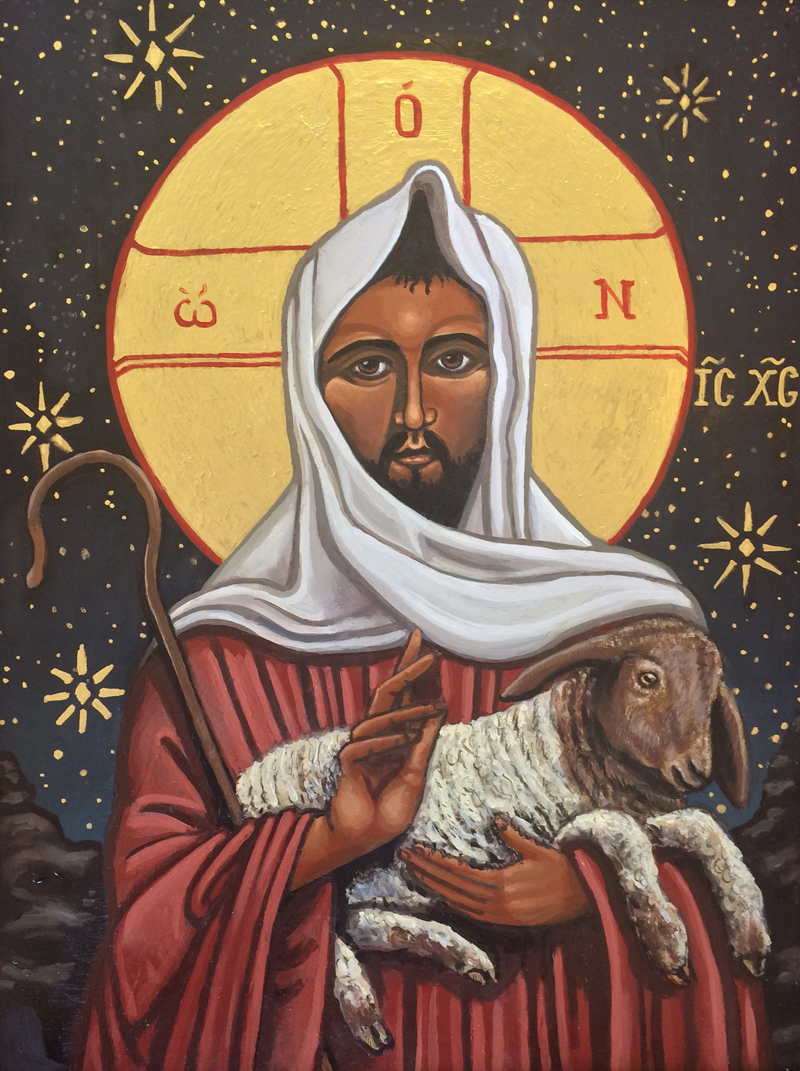Psalm 23
On any normal Sunday, we would open the doors of the church and welcome the world into our midst. We would sing and pray. We would gather at the Table and share together the bread of life and the cup of salvation. That would be a normal Sunday, but these aren’t normal times. We are in the midst of a pandemic, so we’re finding other ways of communicating until we can regather in person.
It’s times like this, when we’re feeling alone, anxious, and fearful that we often turn to the Twenty-third Psalm for comfort and encouragement. I read Psalm 23 from the King James Version this morning because it seems to fit this moment. The rhythm and the wording speak to our hearts, reminding us that the “Lord is our shepherd.” Therefore, we “shall not want.” Like a good shepherd, God leads us to green pastures and still waters. God provides us with such abundance that we can live in hope even in the most difficult of moments.
The Hundredth Psalm reinforces the message of Psalm 23. The words of Psalm 100 were planted in me as a child as we recited it in worship from the Book of Common Prayer. These are the words that stand out to me: “Know ye that the Lord he is God: it is he that hath made us, and not we ourselves; we are his people, and the sheep of his pasture.” (Ps. 100:3). Yes, we are God’s people, “the sheep of his pasture.” Therefore, let us “Enter his gates with thanksgiving, and his courts with praise. Give thanks to him, bless his name. For the Lord is good; his steadfast love endures forever, and his faithfulness to all generations.” [Ps. 100:4-5 NRSV].
While Psalm 100 invites us to join in the worship of God our creator, Psalm 23 invites us to put our trust in God our Shepherd. With God as our shepherd leading us to green pastures and still waters, we can find nourishment for our souls. Then, we can go forth in confidence, for as the Psalmist declares: “Yea, though I walk through the valley of the shadow of death, I will fear no evil; for thou art with me.” Yes, “thy rod and thy staff they comfort me.”
This is the promise upon which we stand: Even when we walk through the darkest of valleys, there is no need to fear because God is with us. That means we don’t enter these dark valleys alone. Now, this doesn’t mean we never get anxious, because we do. It doesn’t mean we should ignore the warnings to stay home and stay safe. We need to be vigilant. That includes staying home as much as possible, washing our hands, and practice social distancing.
Even though we’re not gathering together in person, we can take comfort in the knowledge that “beside us to guide us, O God, we perceive you ordaining, maintaining the power of life” [“We Gather Together,” CH 276].
While we can’t gather in person at the Lord’s Table, we can gather in the Spirit at our own Tables. We can remember that Jesus makes himself known to us in the breaking of bread, whether or not we’re gathered at the church’s table. So, even as we sit at Table in our homes, we can remember the words of the Psalmist, who promises that God “preparest a table before me in the presence of mine enemies.”
What is the enemy? Right now it’s a virus that has impacted our lives in many different ways. But even as we face this enemy, God is preparing a table for us. Yes, God anoints our heads with oil, as any good host would do in the ancient world, and the cup that God provides “runneth over.”
When it comes to this overflowing cup, I appreciate this word from John Calvin. I might not be a Calvinist, but sometimes he has a good word for us. So, hear this word from his commentary on Psalm 23 regarding the promise made by the Psalmist:
He does not say, My cup shall be always full, or, My head shall be always perfumed with oil; but in general he entertains the hope that as the goodness of God never fails, he will be favorable towards him even to the end. [John Calvin: Commentary on the Psalms Volume 1 . Kindle Edition.]
Yes, we can trust that God’s goodness will stay with us all the days of our lives. That doesn’t mean we won’t experience suffering, but we can find comfort in the presence of God who walks with us; the God who experiences our suffering with us; so that we might “dwell in the house of the Lord forever.”
As we follow the lead of the Lord, who is our shepherd, may we find new ways of gathering together. It might be on Facebook. It might be through an email. It might include phone calls. There was a set of phone company commercials back in the 1980s, when landlines were still plentiful, that invited us to “Reach out and touch someone.” It still works, even in the age of smartphones! Besides these readily available resources, we’re working on still other ways of staying in touch, so keep watch!
So, in the weeks to come, may we put our trust in the Savior, who “like a shepherd lead(s) us.”
Preached by:
Dr. Robert D. Cornwall, Pastor
Central Woodward Christian Church (Disciples of Christ)
Troy, Michigan
March 22, 2020
Lent 4A
Image attribution: Latimore, Kelly. Good Shepherd, from Art in the Christian Tradition, a project of the Vanderbilt Divinity Library, Nashville, TN. http://diglib.library.vanderbilt.edu/act-imagelink.pl?RC=57121 [retrieved March 21, 2020]. Original source: https://kellylatimoreicons.com/contact/.

Comments